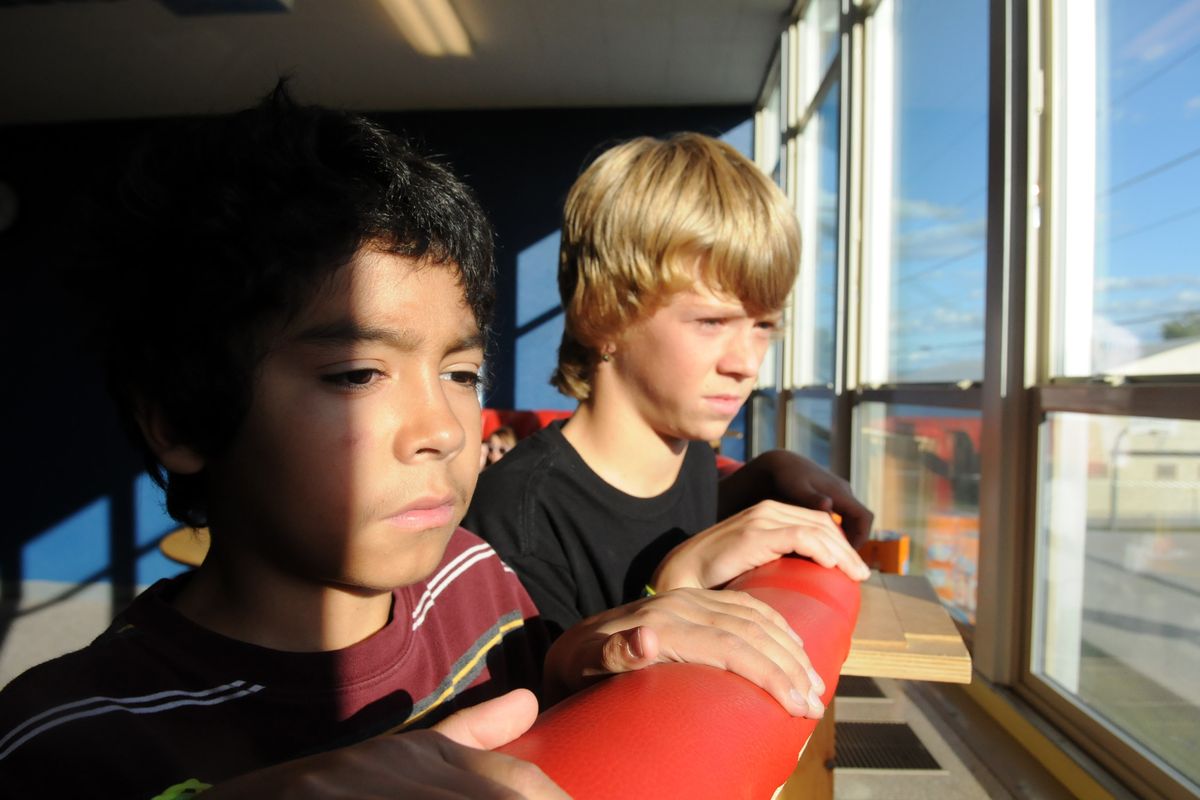Boys & Girls Club program supports struggling students
Goal is to keep them focused on graduation

Billie McMahon struggled in the sixth grade because her math skills were stuck at the kindergarten level. But after she got involved in Be Great: Graduate, her arithmetic abilities shot up dramatically.
“I improved so many grade levels,” said the 13-year-old Spokane girl, who is now acing her seventh-grade math class. “I was getting some help before, but not the one-on-one help I needed.”
The Boys & Girls Clubs of Spokane County, a chapter of the national nonprofit for youth, is one of 10 clubs nationwide chosen to be part of a four-year study by Johns Hopkins University on creating best practices for dropout prevention.
Be Great: Graduate is modeled after Check and Connect – a comprehensive strategy designed by the University of Minnesota. Both programs stress use of mentors; intense tracking of school attendance, behavior and course failure; partnerships among club, home and school; and communication.
Be Great: Graduate is one example of what local educators, community leaders and child advocates say is needed to address the dropout rate of nearly 29 percent in Spokane Public Schools.
McMahon is among about 30 kids who participated in a pilot program at the north Spokane club last year, said Alise Delzell, operations director of the county Boys & Girls Clubs. This year, the Mead-area members were added. Nearly 60 at-risk students are participating.
Be Great: Graduate focuses on kids from fourth to eighth grades. “If you catch the kids before the eighth grade … and can keep them on track and engaged, then they are less likely to drop out,” Delzell said.
McMahon says the local program improved her academics and confidence. “That changed my attitude at school and at home. Now that I look back at it, I was a demon.”
The Spokane Public Schools involved are Longfellow Elementary School and Garry Middle School. In the Mead School District, it’s Mountainside and Northwood middle schools and Evergreen and Shiloh Hills elementary schools. School counselors were consulted about which children should be included.
A student qualifies if he or she has attendance or behavior problems or is failing a course, Delzell said. For example, “if they were failing math or reading, they would qualify. If they are getting suspended from school a lot, then that qualifies. If they only attended school for 85 percent of the year, they are qualified.”
Once the child is identified as a good candidate for the program, the club employees and mentors work with teachers to track the child during the school year.
“The schools will give us real-time data, which is great because by the time the kids get their grades, it’s too late,” Delzell said.
Members of the Boys & Girls Club typically spend three to four hours there after school, generally between 3 and 7 p.m. All children participate in a variety of activities, including using a computer, playing games, learning how to play an instrument, singing or doing art projects.
Students in Be Great: Graduate spend one to two hours working with mentors on the subjects in which they are struggling.
McMahon, who is dyslexic, credits most of her math improvement to that individualized attention.
The club employees or mentors working with the kids also communicate daily with the child and frequently with parents about the three core areas: attendance, behavior or course failure.
The kids are held accountable for their club actions at school and school actions at the club, Delzell said.
Donovan Davila, 11, said that when he goes to the club in north Spokane, “they ask if I had a bad day. If I say yes and it was something serious, I get in trouble here, too.”
When it’s time for parent/teacher conferences, the club employees will go to the meetings if parents are unable to attend, or just to tag along with mom and dad.
“They see us as a child advocate,” Delzell said. “Sometimes the parents are intimidated or not sure what questions to ask.”
The program it’s modeled after, Check and Connect, was also recommended in Gonzaga’s recent study of middle school students and dropout prevention.
Ben Stuckart, spokesman for the Children’s Investment Fund initiative on November’s ballot, said Be Great: Graduate is a good example of a program that would be supported by the money raised through the tax levy.
“This is exactly the type of program we’d want the Investment Fund to be funding because they are using a model that is nationally recognized as a best practice, and they are tracking the outcome, essentially evaluating themselves,” Stuckart said.